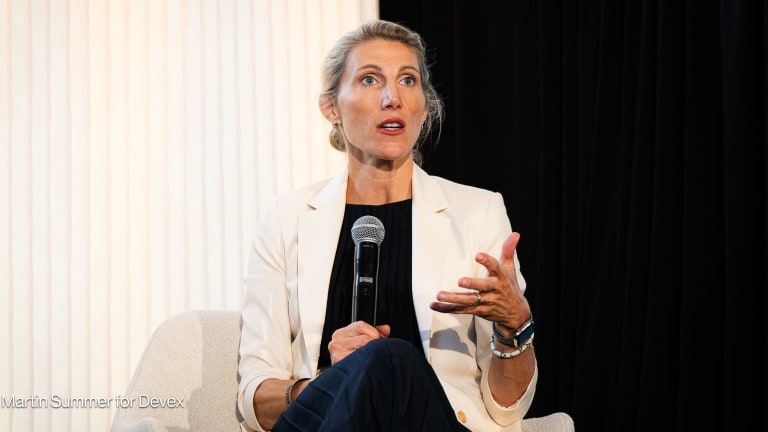
Globalization, urbanization and climate change are redefining the nature of health threats in the 21st century. We can expect disease outbreaks to be more frequent and more deadly, and to hit the poorest the hardest.
The Ebola outbreak in West Africa is a symptom of a new global reality in which health threats are becoming commonplace. Health experts estimate that an influenza epidemic could prove 8,000 times deadlier than this Ebola outbreak.
It’s essential that countries shore up their health systems to detect and contain diseases before they become epidemics that threaten communities, nations and entire regions. Health systems need to be resilient so that when disease threatens to overwhelm them, they can adjust and bend, but not break.
Of course, the top reason for strengthening health systems is to protect human life. Ebola has killed 10,000 people over the past few months. But the Ebola crisis brought debilitating economic and social costs as well. Schools were closed for many months, setting back educational progress. And economic progress slowed dramatically. In fact, the epidemic may cost West African economies $15 billion over the next three years.
Meanwhile, the global community has spent $4.3 billion on relief efforts — nearly three times what it would have cost to build the kind of strong health systems in Guinea, Liberia and Sierra Leone capable of stopping the virus in its tracks. In contrast, Nigeria and Senegal were able to control imported cases of Ebola, thanks to investments in their health systems.
Investing in resilient health systems yields tremendous dividends in times of relative calm, too. Good health has ripple effects on nearly every other indicator of human development. Good health leads to greater productivity and stronger economies. It leads to more cohesive communities. So it’s no surprise that investments in health drove nearly one-quarter of all economic growth in developing countries between 2000 and 2011.
But communities are only as resilient as their weakest links. In too many places, broken health systems leave behind the poorest and most vulnerable people and communities, causing more than 100 million people each year to fall into poverty seeking the health services they need.
Strong health systems must be founded on equity, and universal health coverage is a proven way to ensure all people can access the health services they need without fear of falling deeper into poverty. Universal health coverage decreases out-of-pocket expenses and ensures that quality services are widely available.
Encouragingly, more than 70 countries — rich and poor alike — are taking steps toward universal health coverage. These are challenging reforms that won’t happen overnight. They require strong political commitment and dedicated resources.
Country governments and international partners must recognize that universal health coverage is a smart investment that will both improve the lives of people on a daily basis and protect from health shocks down the line.
Ebola has taught us that the costs of not doing so are simply too high.
This piece is part of a series of articles to be published in “Health Matters,” a news bulletin commissioned by Action for Global Health for European Health Month, as part of the European Year of Development 2015. The paper brings together key stakeholders working on health to confront the challenges of the post-2015 framework, provide recommendations on the means of implementation, and raise awareness on the importance of health for all.








